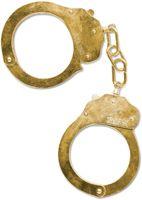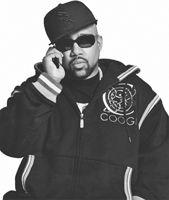Decoded (43 page)
Authors: Jay-Z
Tags: #Rap & Hip Hop, #Rap musicians, #Rap musicians - United States, #Cultural Heritage, #Jay-Z, #Entertainment & Performing Arts, #United States, #Music, #Rich & Famous, #Biography & Autobiography, #Genres & Styles, #Composers & Musicians, #Biography


BIG PIMPIN’ (EXTENDED) / FEATURING UGK
1.
This is my take on a classic piece of pimpology, Pretty Tony’s riff in the movie
The Mack:
“Just like my hoes, I keep ’em broke. They wake up one morning with some money, they subject to go crazy. I keep ’em looking good, pretty and all that, but no dough.” These lines have been referred to a lot in hip-hop—they were sampled completely by Ghostface Killah—but it’s not meant to endorse actual pimping, that was never my thing. Pretty Tony’s delivery is so slick, the slang is so dead-on, the exaggeration so outrageous, and the sentiment so pure and distilled, that as ridiculous as the words are, it still comes off real. It’s fucked up and mesmerizing. It’s also comedy. I was trying to get some of that feeling in this song.
2.
Here are two of the most selfish, least romantic ways to describe sex you can imagine: “need a nut” and “beat the guts.” I was intentionally pushing it—the song is meant to be about pimpin, which is, by definition, selfish and unromantic—but this was also where my head was when I recorded the song. The truth is that when you reach a certain level of success, relationships between men and women can get really fucked up and start feeling like a raw transaction, with high levels of suspicion on both sides.
3.
I like the way “fists in cuffs” sounds like “fisticuffs.” It shows exactly how the song’s narrator sees commitment, almost as an assault.

4.
The irony here, of course, is that like most niggas who throw on the pimp act, I’d eventually give my heart to a woman.
5.
Another
The Mack
reference.
6.
I was a longtime fan of UGK, and they killed their verses on this song. After Pimp C died, Bun B and I performed his verse together (along with about fifteen thousand people in the audience) at a show in Houston, their hometown. His short verse was a perfect eulogy for Pimp C—it was funny, outrageous, smart, and bouncey, and he didn’t waste a single word:
if I wasn’t rapping baby / I would still be ridin Mercedes / coming down and sippin daily / no rest till whitey pay me.

7.
Blades = B.L.A.D.’s = rims.
8.
Even in a song about pushing pleasure to the limit, I can’t help but make the connection between the “big pimpin” and the work that makes it possible—which takes us from the cars, women, and the alcohol, the sun, the mansion, and Carnival—and brings us back to the streets, the corner of the block, the coke, and the potential for a long prison bid hanging over me like a cloud. The recklessness of the pleasure—the selfish craziness of pimping—matches the recklessness of the work.
9.
The girls bring us back from the grim reminder about the work, but not all the way. I’ve already made it clear that these are not girls that I’ll have a relationship with, these are girls that I’ll “thug, fuck, love, and leave,” and these same girls, “laughin it up,” are definitely not going to be holding me down if I do get caught out there. One way or another, in real life, the laughter is going to end. But not in this song. Here, the laughter is the last thing you hear, because this is a song about that moment of pleasure, not about consequences and regrets. But the tension of what comes next also lingers.
STREETS IS WATCHING
1.
This is one of my most often repeated lines. I’m describing asymmetrical warfare, where one side has much more to lose than the other side and it applies to all kinds of situations.
2.
This is a song all about paranoia. To be watched by the streets themselves, clocked by the block, means you’re being watched by everyone and everything all the time, all looking for the slightest opening to come at you.

3.
To ignore the predatory streets is a quick way to get extorted—but in this case, I mean extorted for your time, your life, with a long prison sentence.
4.
“One in the drop” = one in the chamber.
5.
Arms are frozen from “ice” (ice = diamonds, in this case, on a watch or bracelet), ironically the ice means I “can’t chill.”
6.
The warm gun follows the frozen arms, and both mean that the gun is no longer being used—“you gotta keep your heat up.”
7.
A hazard in any successful business is that the one at the top gets relaxed—“feet up”—and becomes addicted to the sweet life, which marks him as weak to all the sharks circling below him. The funny thing about this is that even bullies—the ones who reach the top—can be soft and weak. As soon as they get exposed, it’s a wrap.
8.
A couple of deadly children’s games. Getting tagged here is like a permanent game of freeze tag. And when they play “follow the leader,” it’s not out of obedience, but more like a predator tracking prey.
9.
More dangerous than the cats who want to kidnap you for dough are the killers just trying to make their reputations, because those are the ones you can’t negotiate with; it’s kill or be killed.
10.
The line really means that no matter if I’m actually on the streets or not, my mentality—“hustle harder”—is the same. The narrator of the song is the sort of high-level drug dealer who has to prove that he isn’t sweet, even though he’s not literally on the streets—he has to prove his street mentality to keep his credibility on the block.
11.
This is a regular theme in gangster narratives, especially in hood stories. There have always been smart guys in the game who wanted to just focus on making money—to put all the gorilla shit to the side, all the thugging and stupid rivalries, and work together, because all the rest, the violence and animosity, actually hurt your money and create unnecessary collateral damage. These are the guys who thought you could run a criminal operation like a Fortune 500 company on some Stringer Bell shit. When I was in the streets, I was all about making money. I wasn’t in it for the violence or making a rep and all that. But in the end, between the cops, the crazies, and the poison product, it’s a fucked-up game, and it’s hard to play it clean.
12.
The language tells the story: Even though I call my crew “staff,” like it’s a regular company, most staffs aren’t made up of criminal defendants and corpses.
13.
Even when you find some “success,” the paranoia and guilt tighten around you like a noose.
14.
I switch up here from a moment of conscience back to the practical details of the work. It’s like the work has such a hold on me that it interrupts every other thought.
15.
This is based in reality. The last crew I worked with was largely incarcerated in a sweep that happened after I’d started moving into the rap game.
16.
It’s a small thing, but it’s rare that you’ll hear a rhyme in the whole “crack rap” genre where the narrator acknowledges the damage to innocent people that occurs in the game.
17.
In the end, I make it even more autobiographical by talking about my own transition from someone living the life to someone telling its stories in rhyme, where disagreements don’t lead to death.
OPERATION CORPORATE TAKEOVER
1.
Edgar Bronfmann is CEO of Warner Music Group, Doug Morris is CEO of Universal Music Group, Jimmy Iovine is head of Interscope, and Lyor Cohen, CEO of Recorded Music at Warner.

2.
When I did this freestyle, I was president of Def Jam, a gig I landed after being courted by Universal and Warner. The “makeover” wasn’t just about rearranging the chairs. It was about changing the orientation and spirit of the business. That’s what hip-hop has tried to do whenever it gets into the boardroom. It’s not about sitting behind the same desks and doing work the same way as the people that preceded us. Our goal is to take what we’ve learned about the world from our lives—and what we’ve learned about integrity and success and fairness and competition—and use it to remake the corporate world.
Other books
An Accomplished Woman by Jude Morgan
The Breed Casstiel's Vow by Alice K. Wayne
Some Like It Hopeless (A Temporary Engagement) by Megan Bryce
Personal Shopper by Tere Michaels
The Legend by Le Veque, Kathryn
Baby Makes Five (A Multiple Birth Book 1) by Peters, Nicole
The Deportees by Roddy Doyle
THERE BE DRAGONS by Hallett, Peter
The Octopus Effect by Michael Reisman
Things You Won't Say by Sarah Pekkanen
